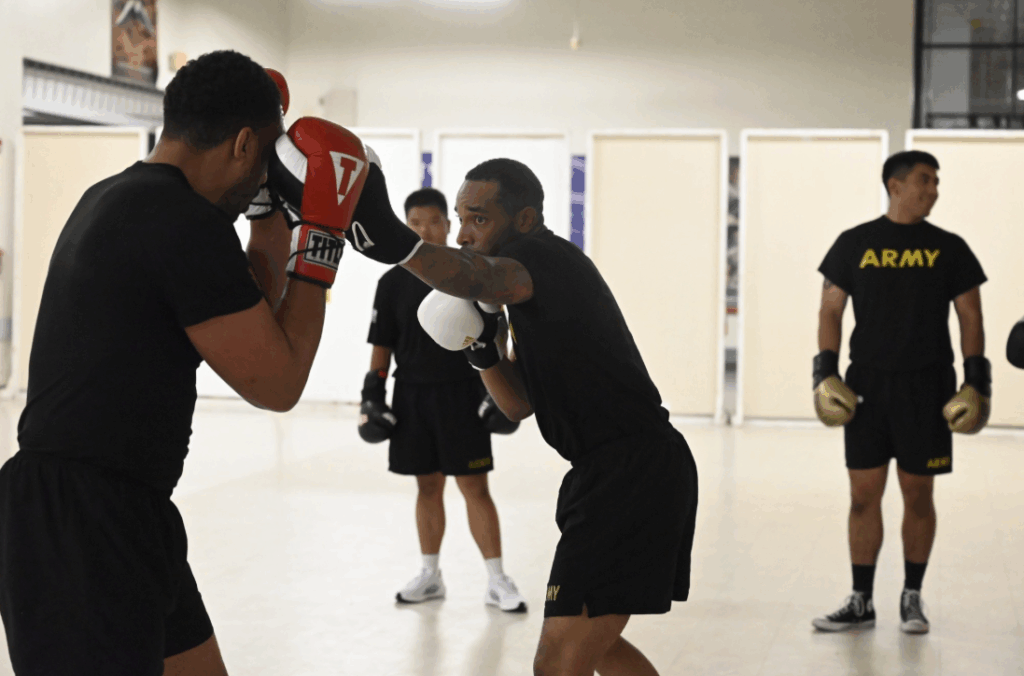Intense boxing training creates a 3-72 hour window of immune suppression that leaves you vulnerable to illness. Your body prioritizes performance over defense during training camp, especially during weeks three and six when training intensity peaks. Without proper nutrition, rest, and recovery protocols, you’ll risk infections that can derail your preparation.
Smart fighters protect their immune system as strategically as they plan their fight tactics. The winning formula extends beyond the ring.
The Science Behind Training-Induced Immune Suppression
While boxers push themselves to new limits during training camp, their immune systems often take a significant hit. The science behind this phenomenon is straightforward. The intense physical exertion creates a temporary window of immunosuppression that can last 3-72 hours after each grueling session.
Your body’s stress response triggers elevated cortisol levels during heavy training, which dampens immune function when chronically activated. This biological trade-off prioritizes performance at the expense of your natural defenses. Inflammation, while necessary for adaptation and recovery, can become systemic when overtraining occurs.
What many fighters don’t realize is that this immune suppression follows a predictable pattern. The harder you train without proper recovery, the more vulnerable you become to illness, potentially derailing weeks of preparation right before fight night.

Common Illness Patterns During Fight Preparation
Throughout a typical eight-week training camp, boxers tend to fall ill at predictable intervals, with most infections striking during weeks three and six. These periods coincide with peaks in training intensity, when you compromise your white blood cells from sustained physical stress.
Respiratory infections are particularly common, with symptoms often beginning after your hardest sparring sessions. It isn’t coincidental. Your immune function naturally dips 3-72 hours post-intense training, creating a vulnerability window.
Smart illness prevention requires recognizing these patterns and adjusting accordingly. Consider reducing training load during high-risk weeks, especially if you feel early symptoms developing. Monitoring your recovery status daily helps you identify when your body needs extra protection before illness derails your camp.

Nutrition Strategies to Fortify Immune Function
Your body’s defense system needs proper fuel to fight off the pathogens that threaten your training camp. Focus on consuming vitamin C-rich fruits and vegetables, zinc from lean meats, and vitamin D from fatty fish to strengthen your immune health. Don’t underestimate the power of proper hydration. Aim for at least 3-4 liters daily to support recovery and immune function.
While whole foods should form the foundation of your nutrition plan, strategic supplements can fill gaps during intense training periods. Consider a high-quality multivitamin, omega-3s, and probiotics to maintain immune resilience. Limit inflammatory foods like processed sugars and refined carbohydrates that can compromise your defenses.
Remember, your immune system works around the clock. Your nutrition should consistently support this critical function.

Recovery Protocols That Protect Immune Health
Because your body’s immune system rebuilds during rest periods, strategic recovery protocols aren’t just about muscle repair. They’re essential immune safeguards. During intense training, inflammatory cytokines increase, potentially compromising your immune health if recovery isn’t prioritized. Implement these evidence-based protocols to maintain resilience:
- Schedule 1-2 complete rest days weekly
- Aim for 8-9 hours of quality sleep nightly
- Use contrast therapy (alternating hot and cold exposure)
- Practice active recovery like light swimming or yoga
- Monitor your heart rate variability (HRV)
Balance your conditioning work with proper recovery timing. Remember that inflammation markers and immune function typically normalize within 24-48 hours post-training. Don’t wait until you’re sick to prioritize recovery. Make it a non-negotiable component of your fight preparation.
Practical Immune-Boosting Tactics for Boxing Camps
While technical preparation remains critical for success in the ring, implementing practical immune-boosting tactics can make the difference between completing camp at peak performance or battling illness when it matters most.
Start by blocking dedicated rest periods in your schedule. They aren’t optional luxuries but essential components of maintaining immune function. Smart boxers create training “waves” with intensity peaks followed by recovery days. Stay vigilant about hand hygiene during camp, especially in shared gym environments where pathogens spread easily.
Consider tracking your morning heart rate; sustained elevation often signals immune stress before symptoms appear. Limit exposure to sick individuals, even if it means temporarily adjusting sparring partners. Remember that protecting your immune system is protecting your performance. The strongest technical preparation means nothing if illness prevents you from executing on fight night.
Frequently Asked Questions
Can Pre-Fight Weight Cuts Compromise a Boxer’s Immune System?
Yes, weight cuts can severely weaken your immune system. You’ll experience dehydration, nutrient depletion, and elevated stress hormones, all compromising your body’s defenses when you need them most before a fight.
How Do Travel and Altitude Changes Affect Fighter Immunity?
Travel disrupts your sleep cycles while altitude changes stress your respiratory system. You’ll face oxygen reduction, dehydration, and exposure to new pathogens. These factors weaken your immune defenses when you’re adapting to unfamiliar environments.
Do Different Boxing Styles Impact Immune Stress Differently?
Yes, your fighting style affects immune stress differently. Counter-punchers often experience less physical trauma than pressure fighters. You’ll need to tailor your recovery protocols based on whether you’re absorbing more punishment or exerting more energy.
Should Boxers Adjust Immune Support During Sparring vs. Conditioning Weeks?
Yes, you’ll need more immune support during intense sparring weeks. Boost your antioxidant intake and prioritize sleep when taking hits, while focusing on consistent nutrition during conditioning-focused periods with less physical trauma.
Can Mouthguards and Shared Equipment Spread Illness in Boxing Camps?
Yes, they can. You’ll risk infections from shared mouthguards, gloves, and training equipment. Always sanitize gear, never share mouthguards, and wash your hands regularly to prevent illness transmission during camp.





